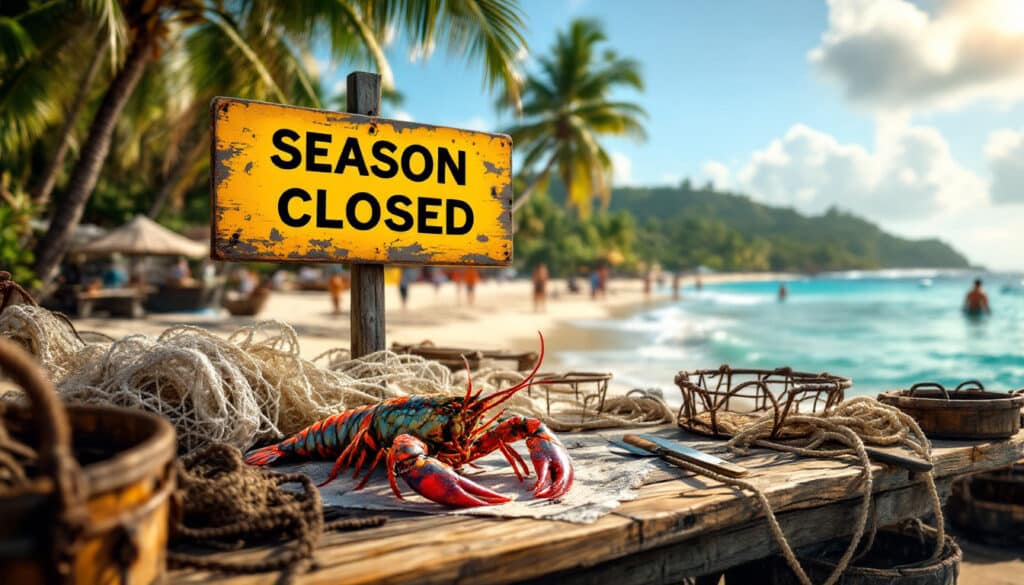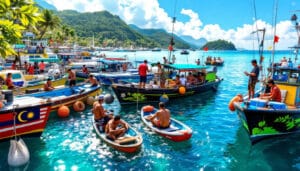The Department of Fisheries recently announced the closure of the Caribbean Spiny Lobster season, marking an essential step in preserving this iconic species. This decision follows growing concerns regarding the state of stocks and the need to ensure the sustainability of artisanal fishing. Opening and closing periods are determined to protect marine ecosystems and promote the reproduction of threatened species. Stakeholders in the sector must prepare to comply with these new regulations to support the responsible management of marine resources.
Table of Contents
ToggleThe Department of Fisheries declares the closure of the spiny lobster season
Every year, the Department of Fisheries takes regulatory measures to protect the populations of spiny lobster in the Caribbean. The decision to close the fishing season is essential to ensure the sustainability of stocks and preserve the balance of marine ecosystems. During this closure period, it is strictly forbidden to fish, possess, or land lobsters in regulated areas, allowing species to reproduce without human pressure.
Impacts of the closure on the local economy
The closure of the spiny lobster season has significant implications for the local economy, particularly for professional fishermen and processing businesses. Indeed, this decision, while necessary, causes economic disruptions for those who rely on fishing. However, in the long term, this restriction is designed to preserve fishing resources, ensuring that fishermen can continue to practice their trade in the future, once the lobster population has recovered.
Regulations on lobster fishing
Regulations regarding lobster fishing, including specific closure dates, are developed by maritime authorities to ensure proper management of aquatic resources. Fishermen must be aware of these laws and respect the closure periods to avoid penalties. Awareness campaigns are also conducted to inform the public about the importance of these regulations and the best conservation practices.









